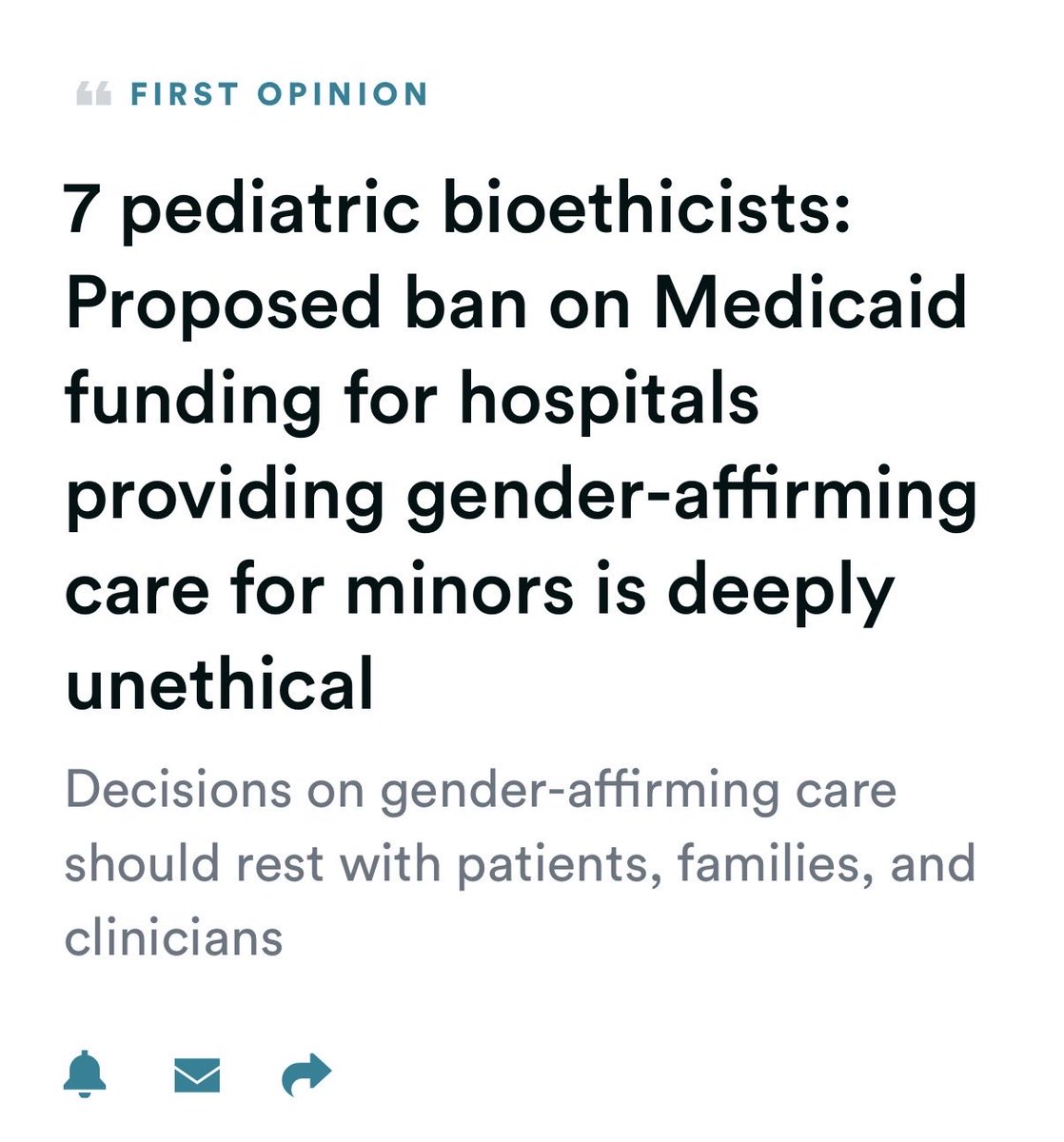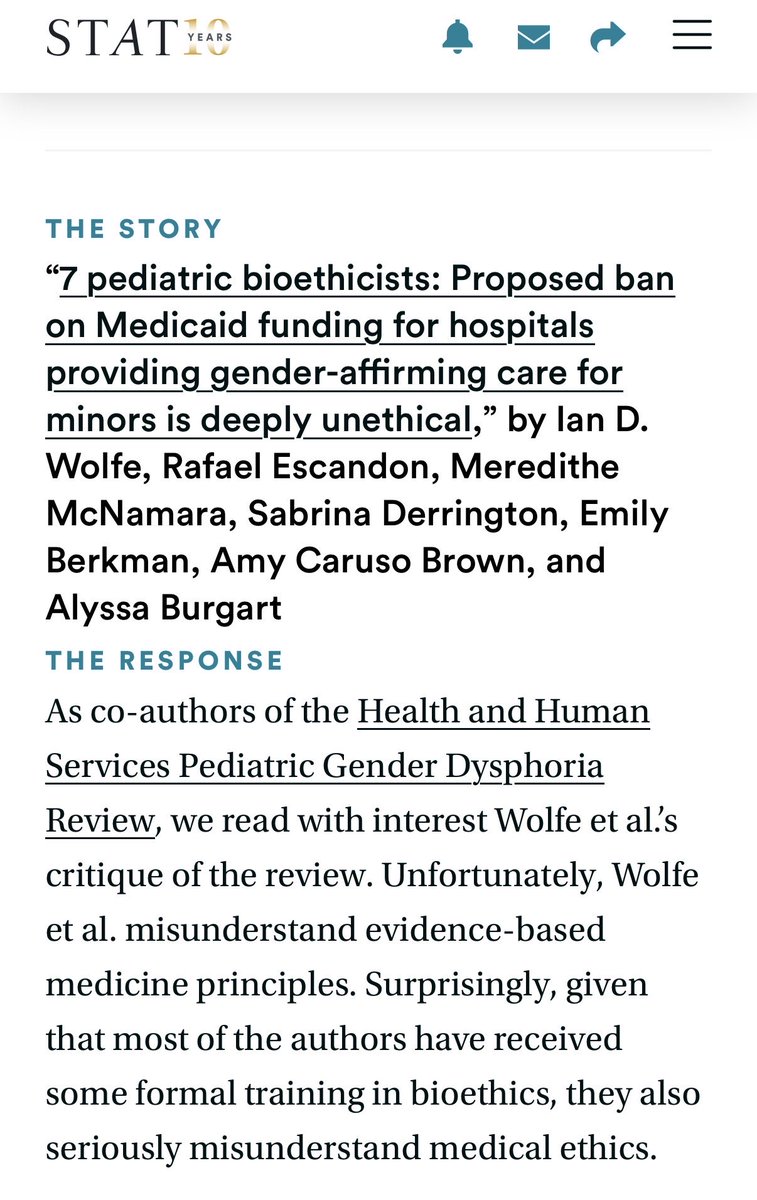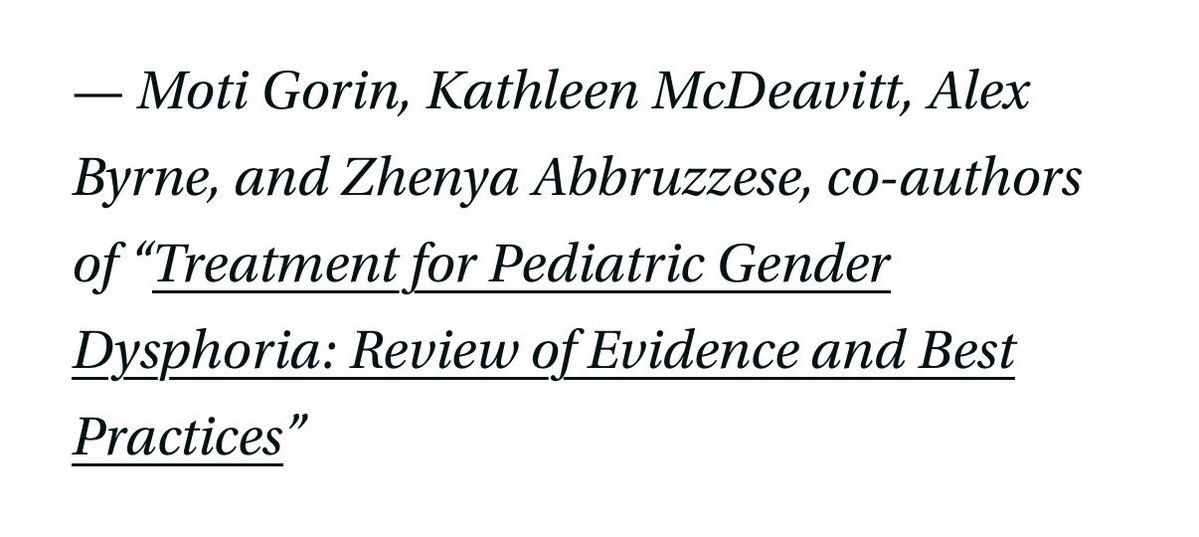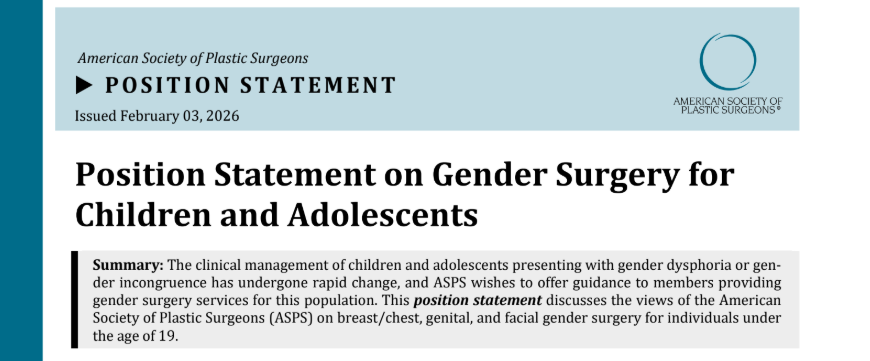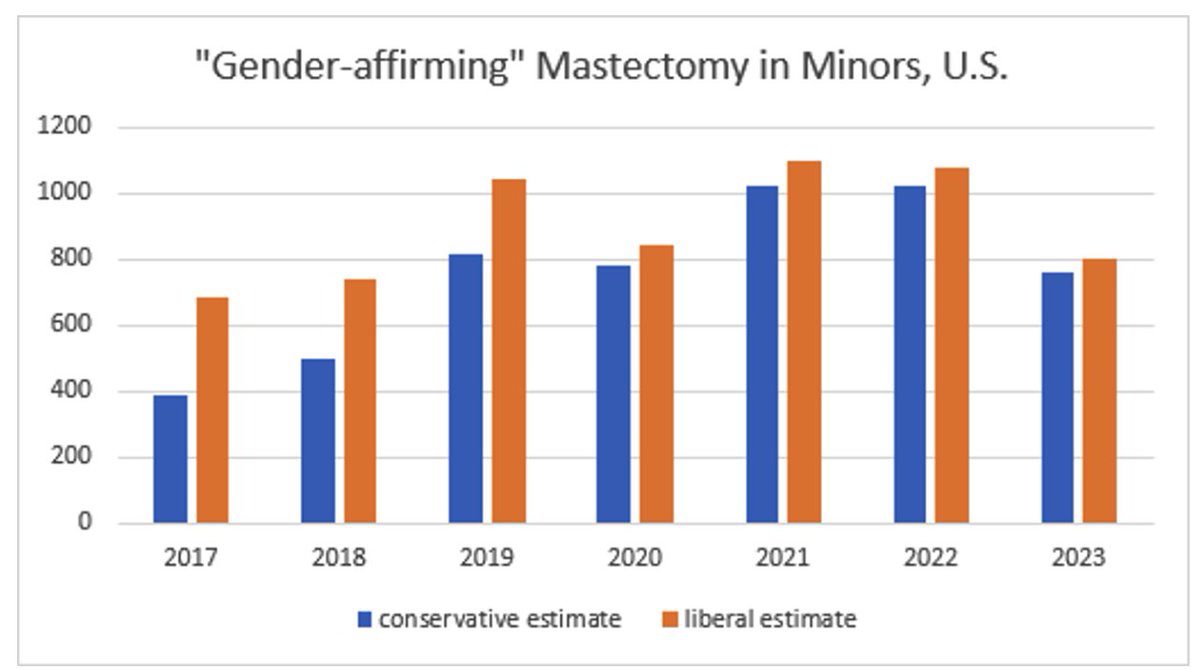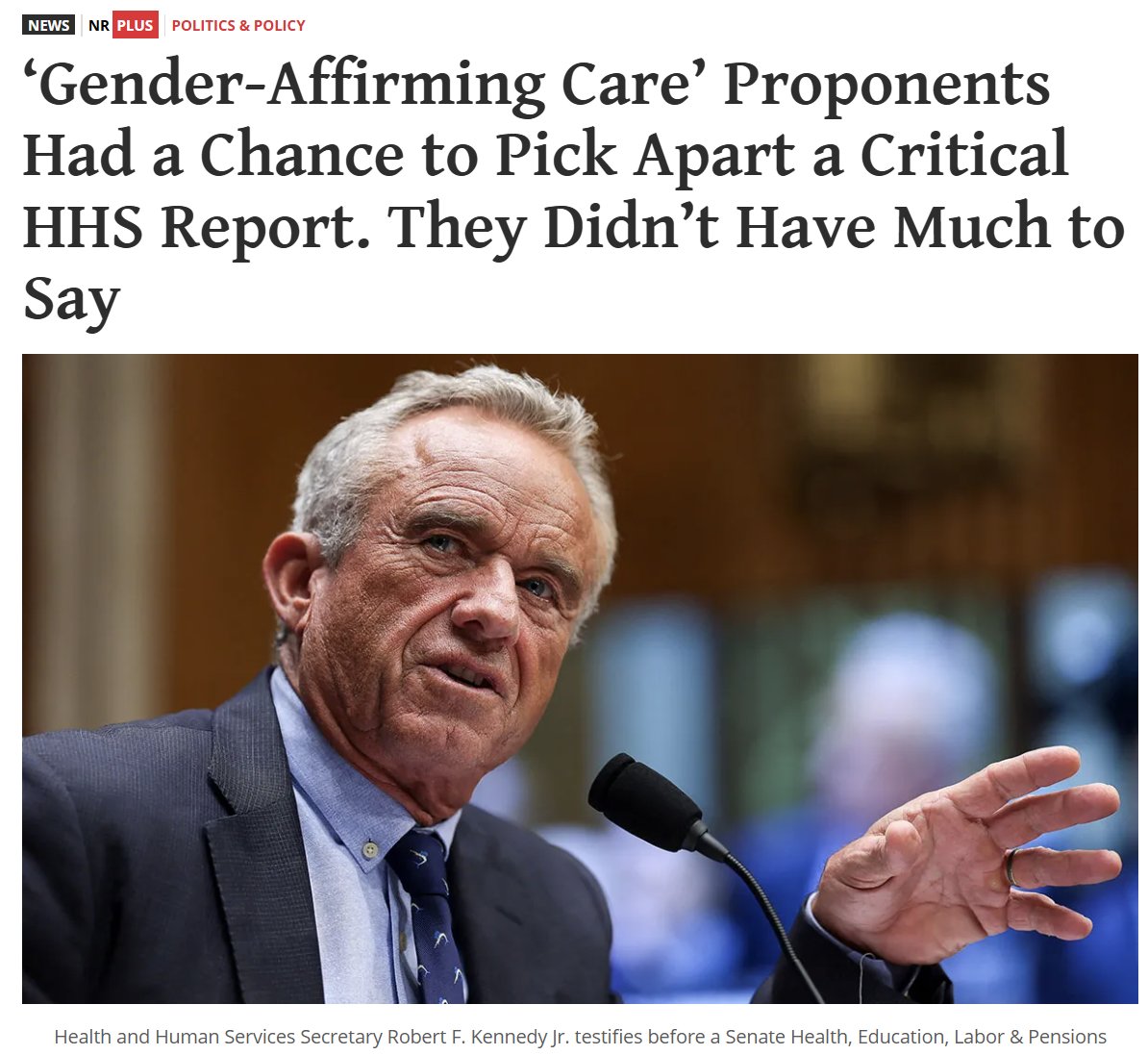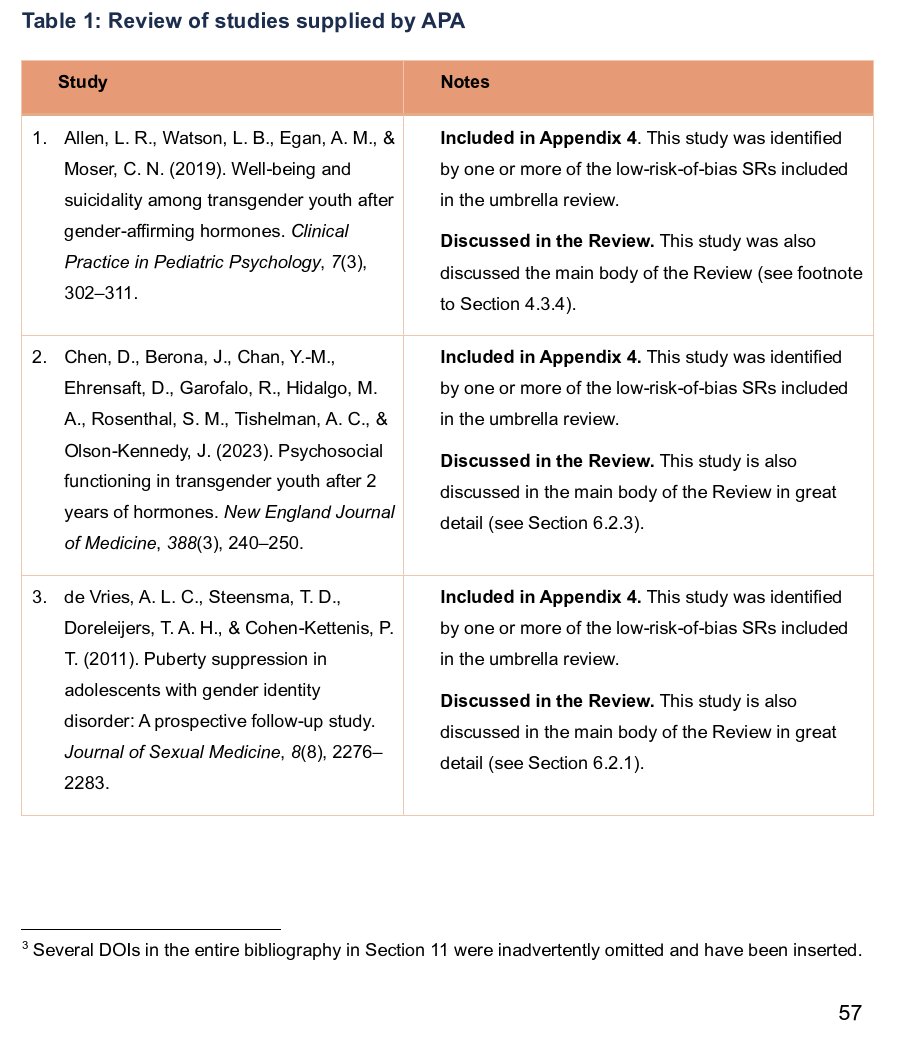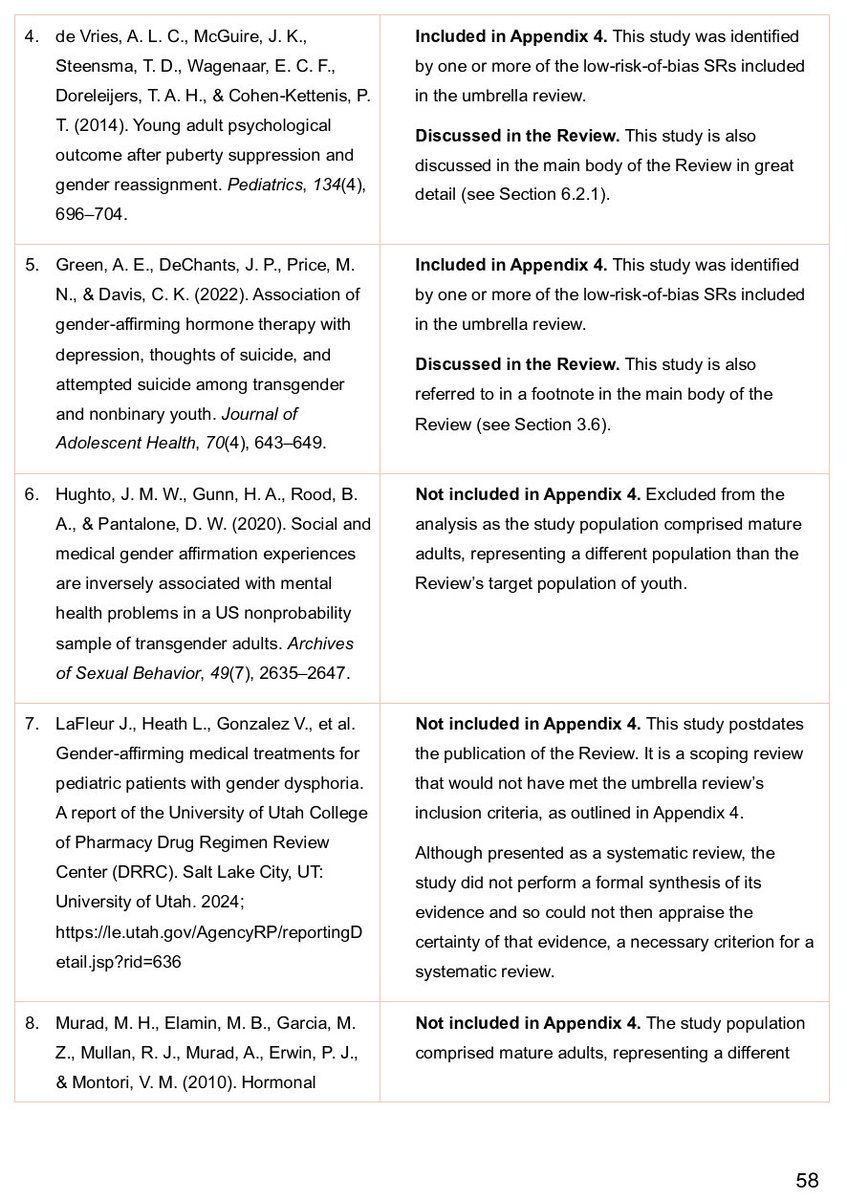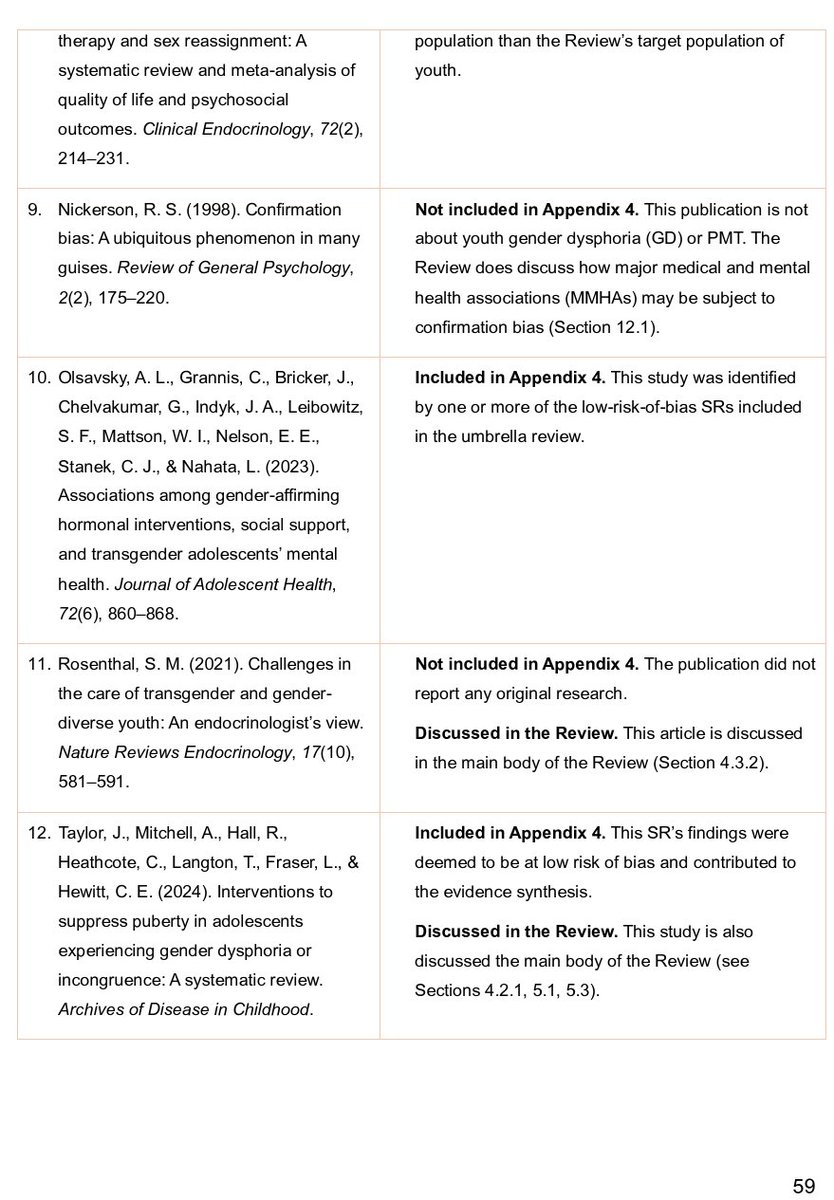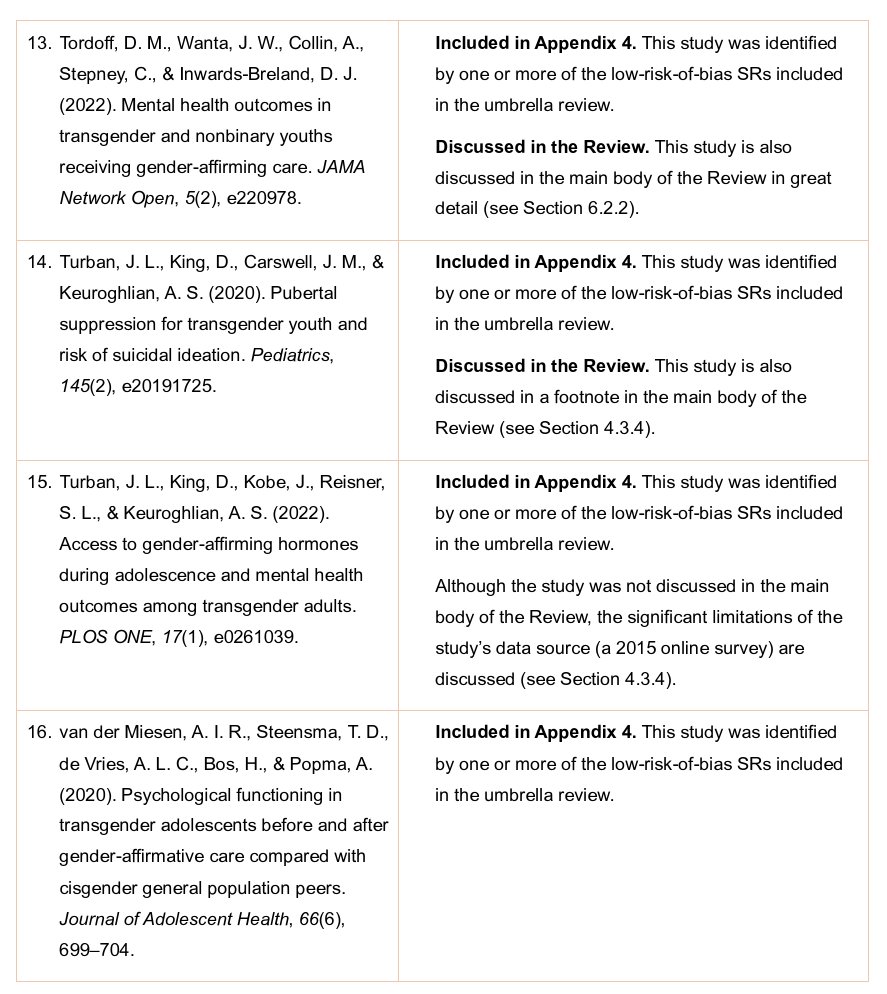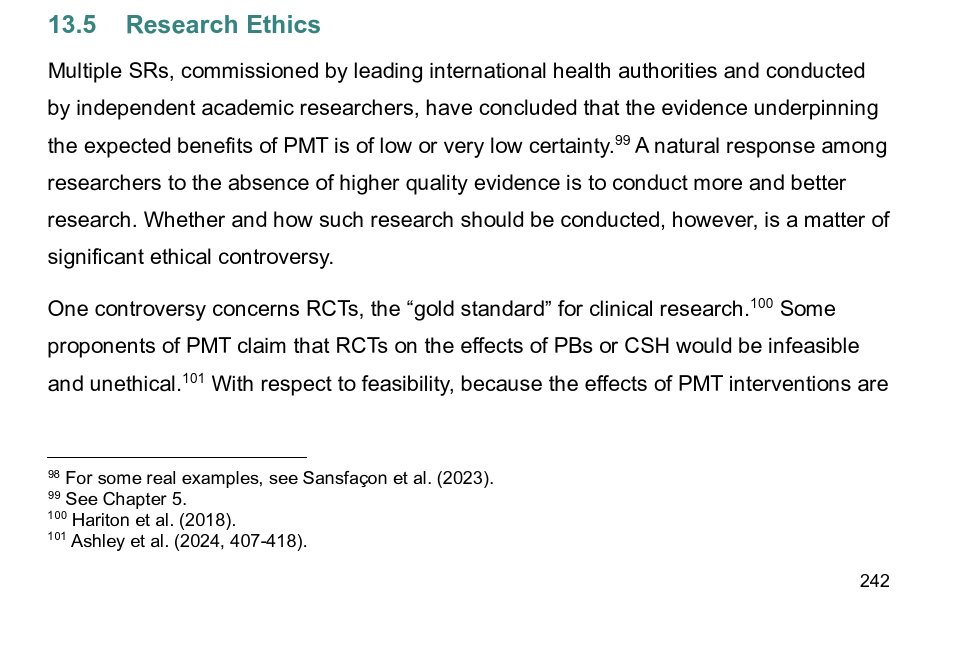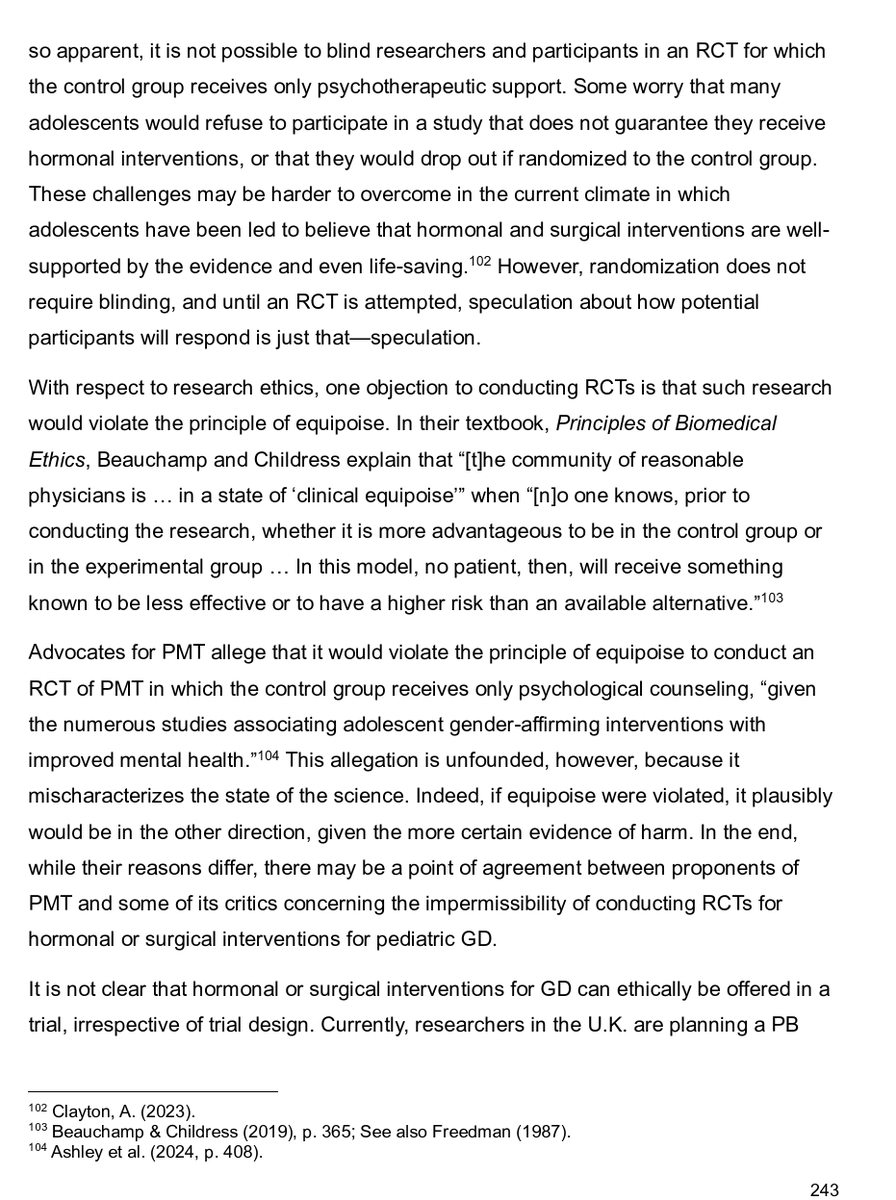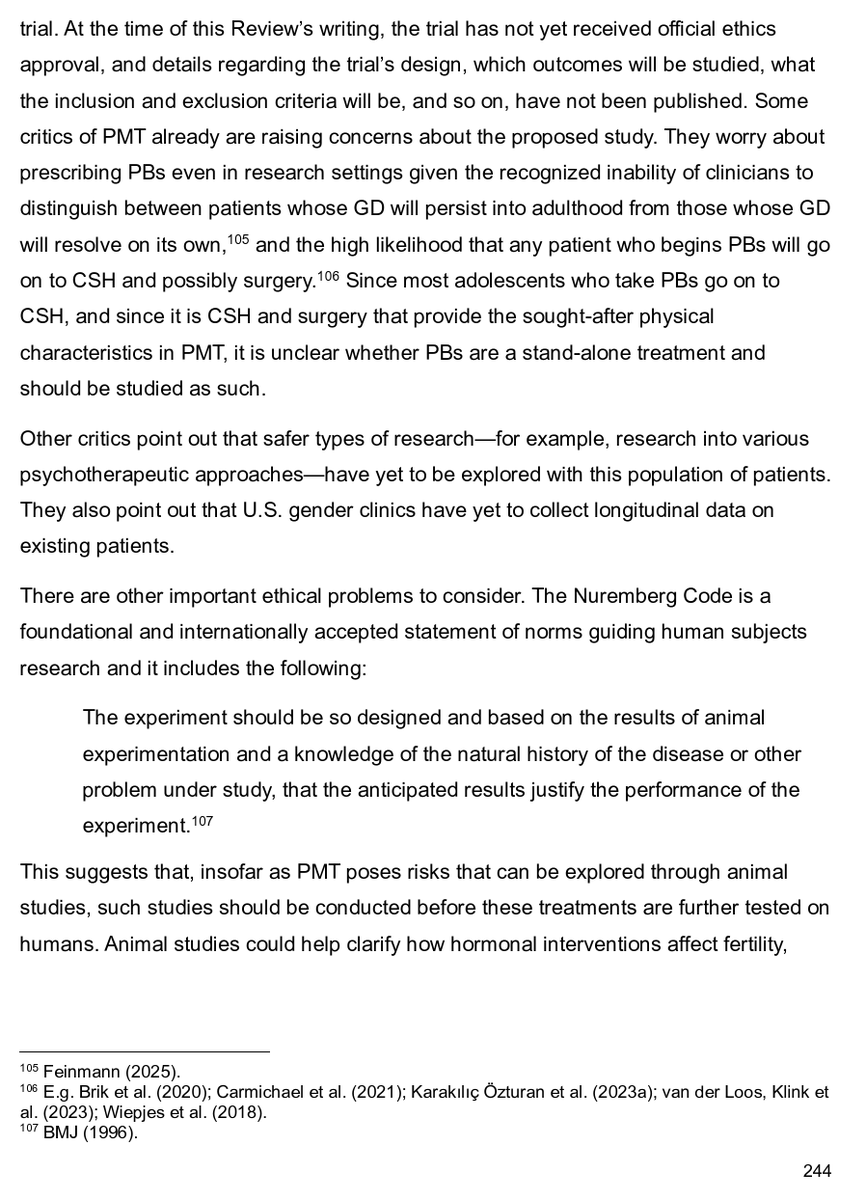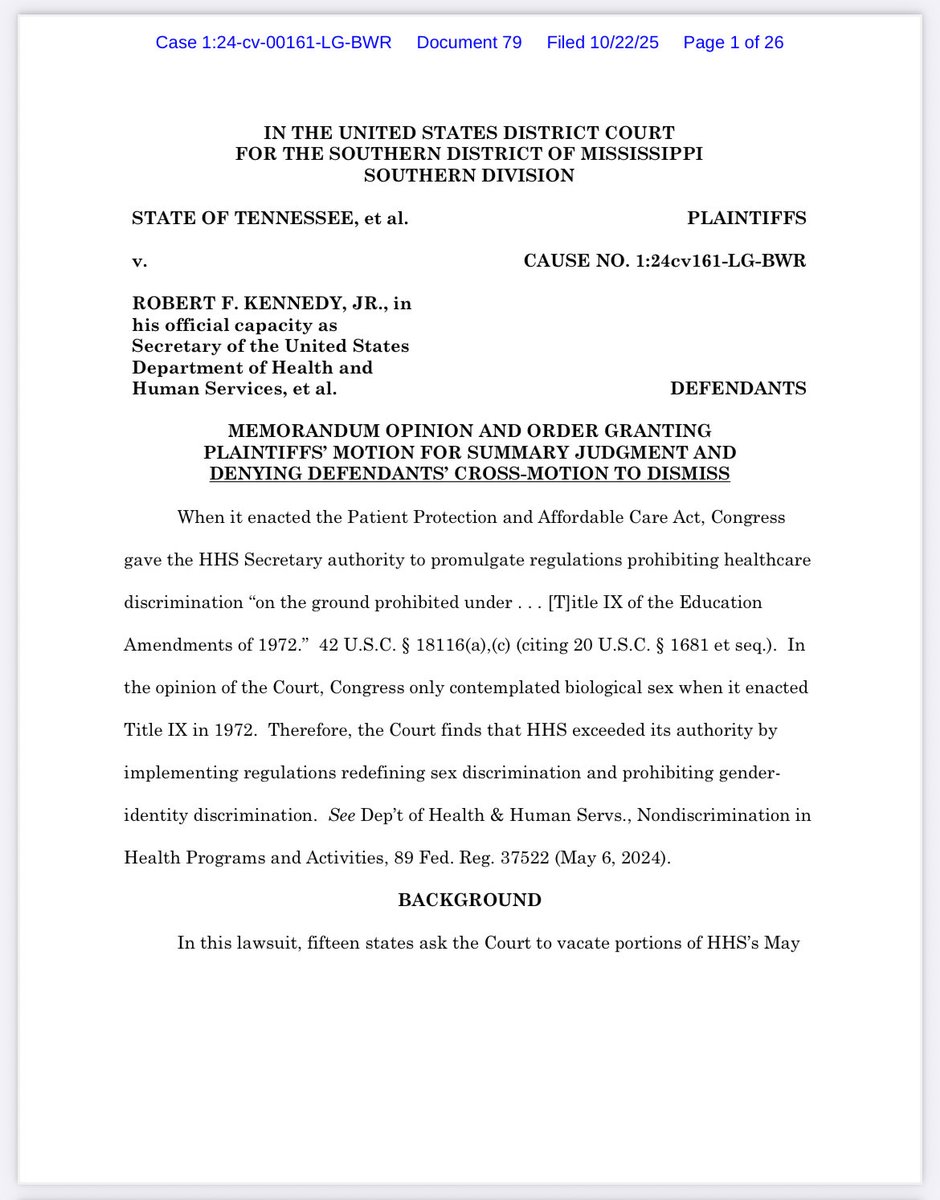BREAKING: The American Society of Plastic Surgeons, an organization representing 92% of all board-certified plastic surgeons in the U.S., becomes the first major medical association to break from the consensus over “gender-affirming care” for minors.
This is big news. 🧵
This is big news. 🧵
2/ In the U.S., the use of puberty blockers, cross-sex hormones and surgeries to help kids who feel distressed about their developing bodies has depended on a perceived consensus of medical groups.
3/ Critics argue that the consensus is manufactured and enforced through suppression of alternative viewpoints and of evidence reviews. The @AmerAcadPeds, for instance, has suppressed member initiatives to get the group to conduct a systematic review of the evidence.
4/ The consensus of medical associations is a chief reason for the growing divide between the U.S. and Europe, where countries have reversed course on youth gender medicine after finding the evidence too weak to support the routine use of Rx.
5/ Court documents recently revealed that @wpath suppressed systematic reviews of evidence and eliminated age minimums for surgery under pressure from HHS’s Rachel Levine (@HHS_ASH). WPATH is the source of the U.S. consensus; its members helped write @TheEndoSociety guidelines.
6/ When I reached out to ASPS (@ASPS_News) for comment on the court/WPATH revelations, the group said it acknowledges the “low quality” nature of the evidence for Rx. It emphasized that it has never endorsed WPATH’s “standards of care” or the Endocrine Society’s 2017 CPG.
7/ ASPS also said it is currently “reviewing and prioritizing several initiatives,” presumably to provide members with better guidance.
8/ My piece also presents, for the first time, data on <18 gender surgeries from an ongoing @ManhattanInst analysis of a national all-payers all-claims U.S. insurance database.
9/ The numbers are higher than even the higher estimates published to date, and that’s still based on a conservative estimate. I present the numbers and trends (including for fast-emerging "non-binary" surgeries") in the piece.
10/ I also discuss how gender clinics provide templates to mental health providers for "letters of support" for surgery. The clinic at @seattlechildren provides a template (link & screenshot in article) designed to bypass any concerns about ROGD. The author of the template appears to be a lecturer in creative writing at a university English department.

11/ At least 7 ASPS members are currently being sued by detransitioners. This includes Winnie Tong, who performed a double mastectomy on Kayla Lovdahl when she was 13 years old. Tong did a 30-minute evaluation of Lovdahl when she was just 12, according to her legal complaint.
12/ I discuss the question of legal liability for plastic surgeons, who, though part of a “multidisciplinary team,” often receive patients after they've been affirmed & medicalized. Gender surgeons seem to defer to clinicians at earlier stages in the “affirming” protocol.
13/ Dr. Sheila Nazarian (@DoctorNazarian), a Beverly Hills-based plastic surgeon who has been following the intl' developments in youth gender Rx, told me that colleagues fear "professional and social blowback" from raising questions or concerns about gender surgery on kids.
14/ The current approach “reduces surgeons to mechanics,” Nazarian says, but “we are not highly trained technicians. We are physicians with responsibility for the health and well-being of our patients… You can’t outsource your professional judgement to other clinicians.”
• • •
Missing some Tweet in this thread? You can try to
force a refresh


